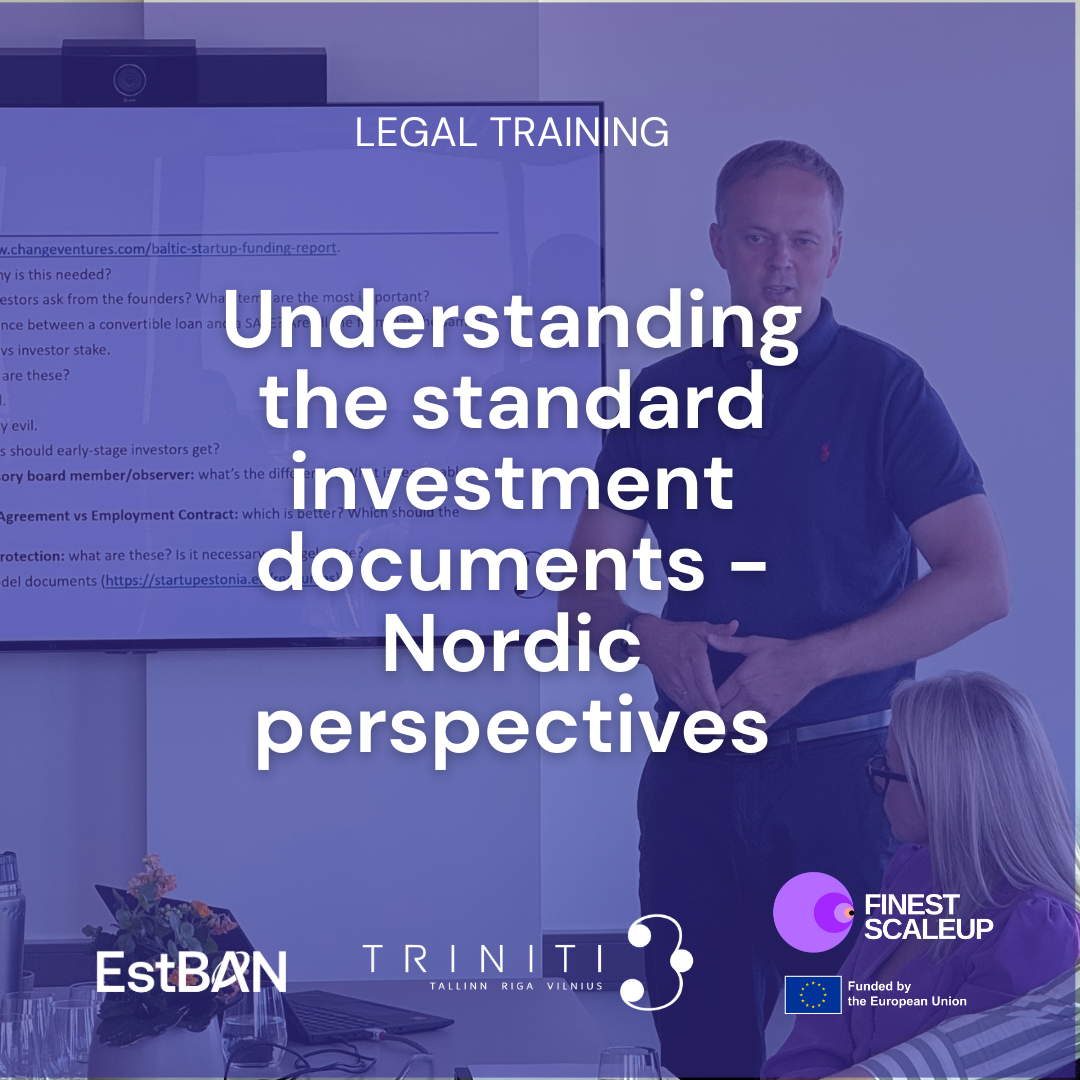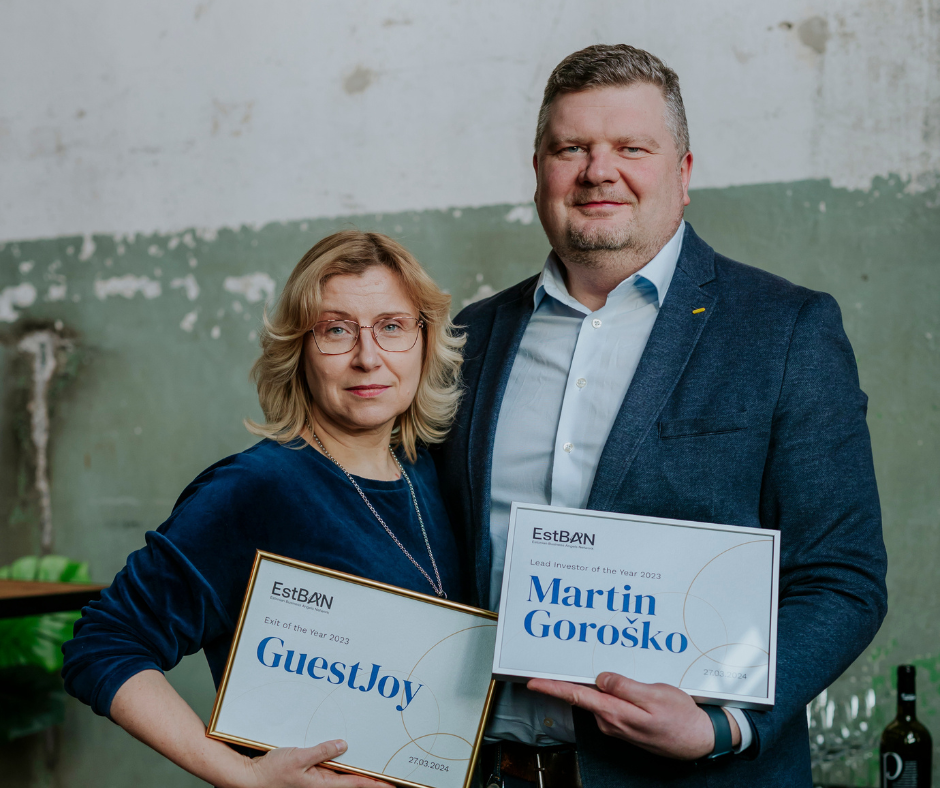Hardi Kampus is one of the founding members of EstBAN and serves in the supervisory board of the startup accelerator Startup Wise Guys. With a background in asset management, he currently runs his own investment company Solver Invest.
Hardi was interviewed by Marek Unt from JLP Communications Agency.

You started your career in banking and founded an asset management company in 1997, right at the peak of the local stock market and just before Estonia went into a recession. How did your experiences from that era shape you as an investor?
It’s true; we started at the worst possible moment. The show was over pretty quickly, but spinoffs of the original company remained and turned out to be quite successful.
However, my view on angel investing is purely based on portfolio management principles. I look for a mix of assets, and a part of the mix are high risk / high return investments.
My strengths are in risk management – I’m not the guy that invests half of his free cash in a company, then the other half as well and weeps after he loses it all. I like to take it slow, since I fully realise that my first 10 investments may be misses.

You’re also one of the initial investors in the startup accelerator Startup Wise Guys. How did that come about?
You could say it happened by chance. My neighbour mentioned the idea of a startup accelerator being put together, I met the founder Herty Tammo, I liked the idea – that was it.
Also, you cannot really miss with a startup accelerator, as long as the team is good. An accelerator divides its funds in small pieces between a lot of startups, so losing money is highly unlikely. You also probably won’t make any surreal profit, but it’s solid as an investment.
Did the jump into angel investing come easy for you?
I consider myself to be quite green as an angel. Being a part of an accelerator gave me a pretty decent picture of the startup companies in Estonia, but investing in an accelerator is quite different from investing as an angel. The world of angel investing is still quite new to me. I am no stranger to buying and selling companies, of course. But when I listen to discussions between experienced angel investors, I often scratch my head and wonder if that’s how I would have done it – probably not.
How much of a hands-on angel are you?
I can’t really consider myself an angel investor, because I have no angel investments – yet. And about being hands-on – my background is in finance, so I would say that it’s not something that a seed stage company needs at that point. Angels usually invest in the phase where it’s all about spending money.

What are your criteria for potential investments?
I don’t really limit myself to a sector, but I do like certain business models. I really value distribution channels, but they are rare to find. The model of a distribution channel allows you to collect money for being a hub and re-distributing value. It doesn’t matter for me what is being distributed.
What are some examples of Estonian startups that utilize this model?
One of them is GateMe – it’s purely a distribution channel, providing a service for night clubs.
What are some of the reasons that have been stopping you from investing?
Startups valuate themselves too high. There is a disconnect between what the investors are expecting to go in with and what the startups are asking for a share in their company. I can understand it from a startup’s point of view – they don’t want to sell themselves cheap. But it’s what keeps a lot of investments from happening.
Where do you think this disconnect comes from?
I think it’s partly the incubators telling startups to go for it – to ask for as much you can. But if a beginning investor like myself sees that a business idea is valued at 2,5M€ and 8% share is offered at 200k, you just shrug and move along. A more experienced investor might sit down at the table and start negotiating, but not if you’re new to the field.
So are startup incubators harming startups with their advice?
No, not by far. I think that if you look at the companies that go into an incubator and that come out, the difference is huge. They would not be able to negotiate for any investments if it wasn’t for the incubators. It increases their chances tremendously. It’s just a matter of a reasonable meeting point between the startup and the investor.
Also, if incubators are bringing in mentors from the US, the suggested valuations can certainly be different. It’s another story to raise money from the US – the valuations are high, but it’s also more competitive. Getting money locally is easier, but you have to settle for less of it.
What have been the benefits of EstBAN for you personally?
The network has a single important benefit for me – the pipeline. If you’re a person that has 50-100k to spend each year and you decide to start investing in startups, you bump into the question of where to find them. If you don’t have a network or a channel for that information, you need to invest a lot of time and money to familiarize yourself with the market, to run through startup accelerators etc. With EstBAN, you have a centralized pipeline that basically covers 80% of all Estonian startups. It’s a matter of being informed.
What are your expectations towards 2014?
I’m really crossing my fingers for public funds for startups. Estonian Development Fund and SmartCAP are a vital part of the startup eco-system in Estonia. Without public-private partnership and public funding to meet angel funding in the seed phase, angel investors would be left out in the rain.



